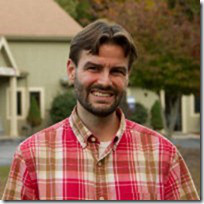Welcome to Spark My Muse!
DETAILS:
• AUDIO is released each WEDNESDAY.
Thank you for helping, with a donation today !

Check out PATREON support too.
Today, my guest is Krista Tippett.
Krista is a Peabody Award-winning broadcaster and New York Times bestselling author. She is the host of On Being, a radio show and podcast distributed to more than 400 stations across the country, a program which often ranks among the top 50 podcasts on iTunes. Krista is the author of several books, including, Becoming Wise: An Inquiry into the Mystery and Art of Living, published in April, 2016.
In 2014, she was awarded the National Humanities Medal at a special ceremony at the White House, and honored by President Barack Obama for “thoughtfully delving into the mysteries of human existence. On the air and in print, Ms. Tippett avoids easy answers, embracing complexity and inviting people of every background to join her conversation about faith, ethics, and moral wisdom.”
(Share audio using the app below. Share by TWEET some of Krista’s most memorable quotes when you see the blue bird icon.)
Podcast: Play in new window | Download (Duration: 47:13 — 64.8MB) | Embed
Subscribe to Spark My Muse Apple Podcasts | Spotify | Email | TuneIn | RSS | Subscribe to Spark My Muse
SHOW NOTES
MIN 1
The twist on the question Krista usually asks her guests.
Our children are watching us more than they are listening to us
Learning to not see people with distinctions and to not see people difference.
MIN 5:30
Nostalgic and loving view of religion of the grandfather. Hymns
MIN 7
Her own spiritual practice
Karen Armstrong – my work is my prayer
Krista writing a prayer, bare bones liturgy, gratitude,
“I don’t know what I mean when I say I pray, but there is something essential and grounding about having this as part of my life.”
[ictt-tweet-inline via=””]Prayer is also an orientation to mystery. My prayer now has very little to do with asking for things. via @kristatippett[/ictt-tweet-inline]
MIN 12:00
Going to Divinity School in the 1990s and the life of the mind and keeping the eyes of a journalist on the world. The important issues of theology and human life were discussions that were missing in public life.
MIN 16:00
Religion, politics, and values
MIN 19:30
The puzzle about human beings and doing “what we ought”, and power, agency, and will and choice, and being people of integrity that need cultivation and our need for each other.
MIN 21:30
We can value that we have the knowledge that we know what’s right and we can learn to get companion for ourselves.
MIN 23:00
Does one need to suffer to become wise?
[ictt-tweet-inline via=””]Suffering is not optional. via @kristatippett[/ictt-tweet-inline]
[ictt-tweet-inline via=””]Suffering offers rich ground for becoming more wise but it can take generations. via @kristatippett[/ictt-tweet-inline]
MIN 24:30
Krista on her own depression and how it deepened her wisdom.
[ictt-tweet-inline via=””]Suffering is seedbed of wisdom but not the only seedbed of wisdom. via @kristatippett[/ictt-tweet-inline]
MIN 26:00
Hefty wisdom and also the kind of wisdom children possess.
MIN 28:00
How have the wisest people you’ve spoken to continued to learn and grow in wisdom?
[ictt-tweet-inline via=””]Wise people find a way to stay soft in the face of what ever life will present next.via @kristatippett[/ictt-tweet-inline]This lessens the suffering.
MIN 30:00
Hope is borne of struggle
A toughness and courage
MIN 32:00
The connection of Empathy and Wisdom and how it’s embodied.
[ictt-tweet-inline via=””]Wisdom is a quality of presence. via @kristatippett[/ictt-tweet-inline]
[ictt-tweet-inline via=””]If we walk through our sufferings and losses desiring to learn from them and to grow and deepen, empathy is a natural effect. via @kristatippett[/ictt-tweet-inline]
MIN 35:00
The most foolish people get all the attention.
As a culture we seem to be growing distance from each other and less empathic–what can be done?
[ictt-tweet-inline via=””]Fear is an empathy killer. via @kristatippett[/ictt-tweet-inline]
We can become paralyzed and think we can’t do anything.
[ictt-tweet-inline via=””]If many of us could take up the calling to be ‘calmers of fear’ and really close to home. via @kristatippett[/ictt-tweet-inline]
[ictt-tweet-inline via=””]We really need to be leaning into the better angels of our nature to stand up to the challenges of the 21st century together in common life.[/ictt-tweet-inline]
MIN 39:00
We are talking about work that is stitching a new fabric of common life that has to start at a very personal level.
Being a non-anxious presence for others
MIN 41:00
We are not taught to be a non anxious presence as powerful people or to be powerful this way and we need more postures in our common spaces; and it won’t feel intuitive.
MIN 43:00
Human drama will remain after the (2016) election and we have to be equipping our selves to reckon with that and be present to that.
MIN 44:00
Krista answering the “so what” question for herself in public life and presence in the world and moving away for being the On Being organizational direction.
Please enjoy some of the recent episodes:
Pick a option that is best for you.







